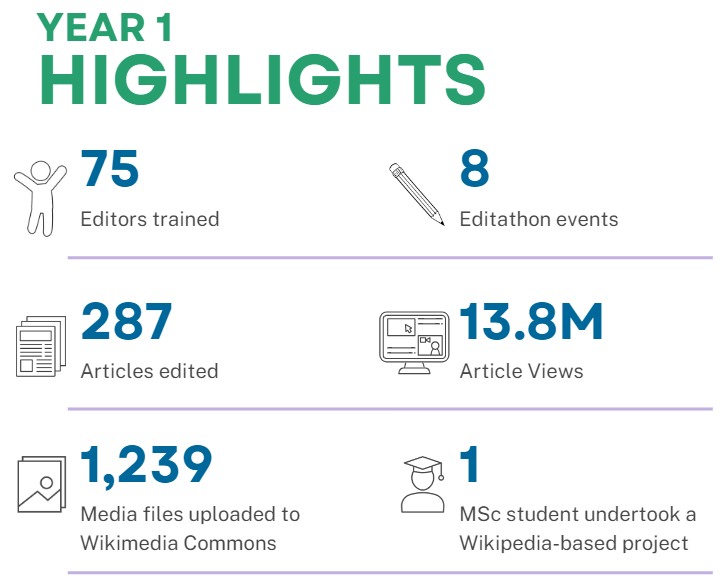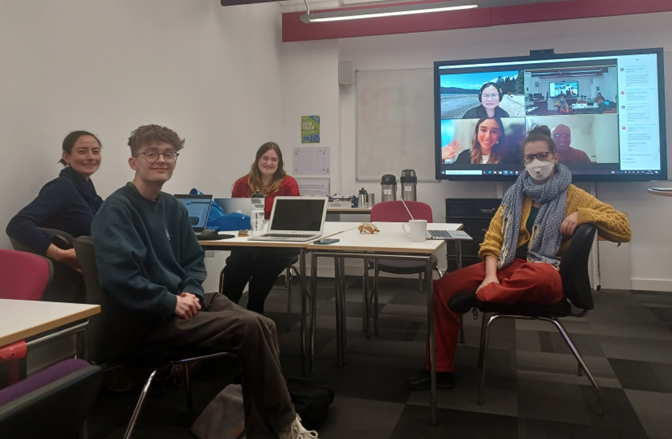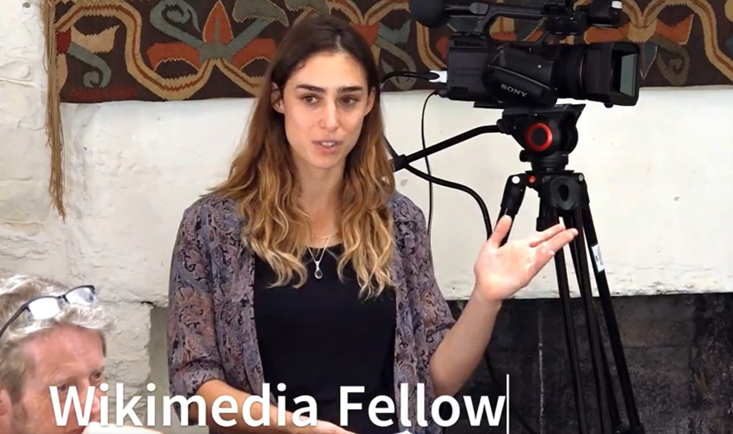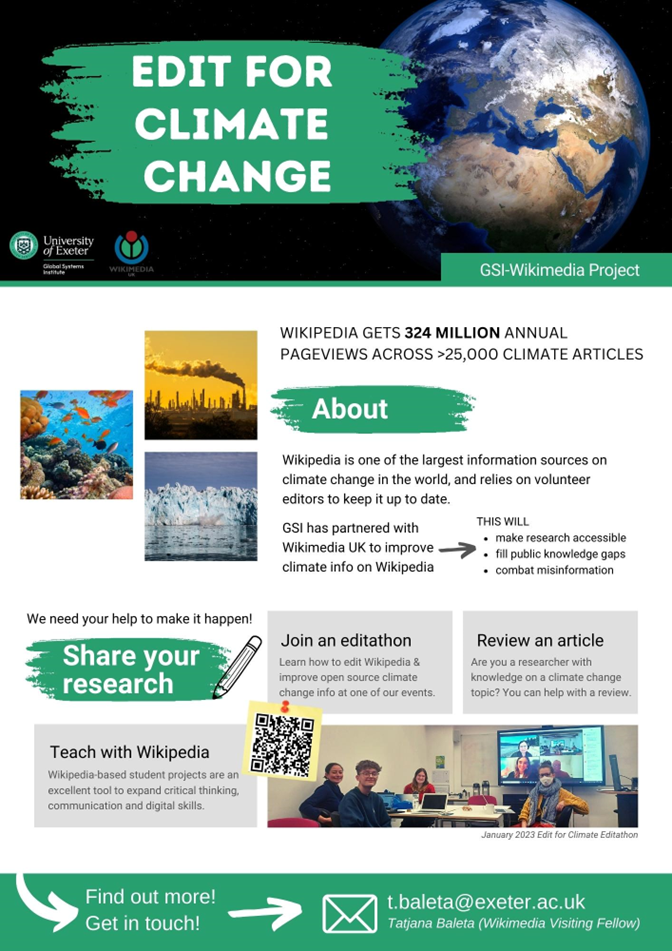Lessons from the Residency for Climate at the Global Systems Institute
Universities are centres of knowledge, learning, research, and discovery that generate a wealth of information profoundly relevant to the public sphere. One example of this valuable research is information pertaining to climate change.
I have been the Wikimedian Visiting Fellow (aka Wikimedian in Residence) for Climate at the University of Exeter’s Global Systems Institute since October 2022. In a nutshell, my role at the institute is to help channel their research and knowledge on climate change onto Wikipedia and other Wikimedia platforms. You can read more about the project at Wikipedia:WiR/Global Systems Institute and in WMUK’s Strategic Report.
Here’s a snapshot of achievements by the end of year 1 of the project:

This project has required engaging students who have enthusiasm for learning new content and skills development, lecturers and teachers seeking new ways to teach, and researchers and academics who apply their vast and detailed knowledge to investigate and answer questions about the world. Each has their own interests and abilities.
So you want to engage these audiences in Wikipedia? Here are some things to keep in mind:
1. Myth busting
From the outset, I had to spend time dispelling out of date or incorrect ideas about Wikipedia held by academics and students. These ideas included: information deleted from Wikipedia by vandals is irrecoverable; that there is no review process for new edits on the platform; and that content on Wikipedia is generally untrustworthy due to a lack of sourcing requirements and the ability of anyone to edit.
Providing talks as part of existing seminar series were a great opportunity to address these concerns, explain the value of Wikipedia and how it operates. I also added a few “mythbusting” slides to my editathon training presentation to quickly address these questions before they arose. The slides covered, for example, Wikipedia’s verifiable sourcing requirements, editing history pages, and how automated vandalism bots and dedicated Wikipedians in WikiProjects check over new content added.
2. Communicating about events
- Motivation & messaging
As with any event, it’s important to consider who your target audience is and how to promote a Wikipedia event in a way that will entice them. Consider what their interests and motivations are. What would they get out of attending your event?
In my case, researchers and academics want their work to have an impact in the world, so I emphasise the fact that adding information on Wikipedia places it in a place where people can read it and act on it, free from jargon (ideally) and paywalls. Importantly, academics have extremely busy schedules with not much time to spare. Consider how you can make participating in your Wikipedia project easier and simpler for them.
Lecturers might be most interested in how they can use Wikimedia platforms to set interesting and engaging coursework and student projects, and how their students can apply the content they have learnt and expand their skill sets through these projects.
For students, editathons are an opportunity to learn more about the topic of the event and improve their science communication, writing and digital skills, so advertise these aspects. If you have the budget, the offer of a free pizza slice or other snack to entice undergrads won’t hurt. PhD students may also find editing Wikipedia articles useful as part of their literature review.
- Communication channels
To reach your desired audience, consider how they communicate and receive information. Is there a university newsletter or institutional mailing list you could advertise your Wikipedia event through? Or perhaps, if you’re interested in targeting students, putting up posters and partnering with a relevant student club or society that can share the event on their social media would be more useful.
Connect with the university’s comms team and / or institution admin staff to learn about the options. Together with the university’s website, they will also be able to help you discover any existing conferences, meetups, research groups or ongoing bodies of research at the university that you can leverage to advertise to possible event attendees.
3. Calendars and timings
Pay attention to university term times, exam times and other calendar events at the university – these will influence when the best time to engage staff and students is. Again, university admin teams will be able to provide you more information on this. For example, I learnt that Exeter University’s student clubs and sports teams meet on Wednesday evenings – so this would be a bad time to hold an event aimed at students.
These are just a few considerations I have encountered when engaging audiences at a university in the United Kingdom. You may find that some of my observations don’t hold for your own context, so keep that in mind.
Last, but certainly not least, be passionate and enthusiastic. Showing your excitement about engaging audiences goes a long way in building intrigue and interest in Wikipedia.
Good luck!




Can you help us translate this article?
In order for this article to reach as many people as possible we would like your help. Can you translate this article to get the message out?
Start translation